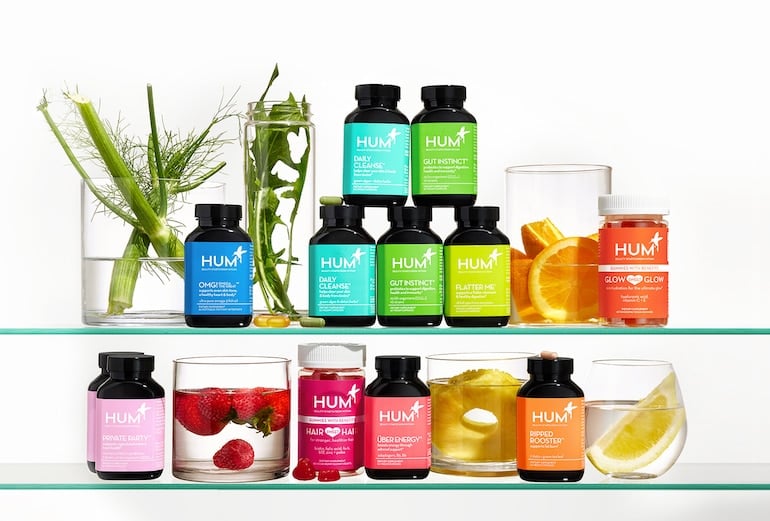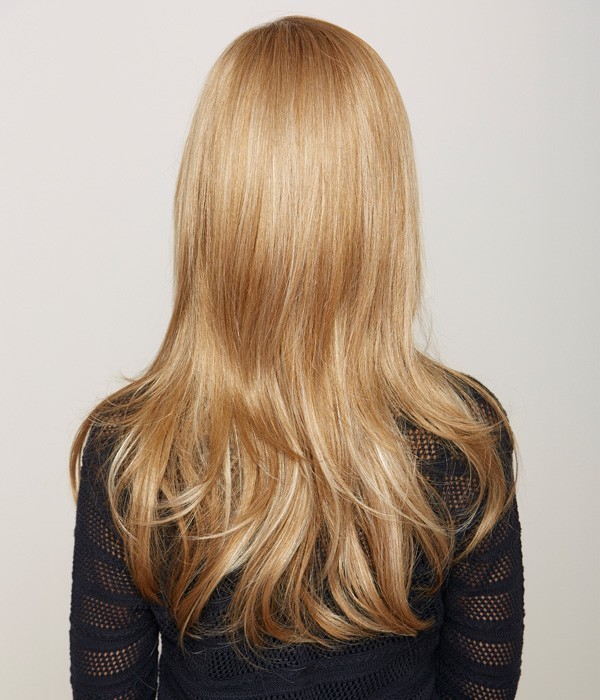Thinking what ingredients to stay clear of in nutritional supplements? We produced it simple for you by establishing our Difficult 12 listing of elements we usually formulate our supplements with out. Read through on to understand why these elements could pose wellbeing challenges and must be prevented.
You in all probability give a ton of imagined to what is in your supplements—vitamin D to assistance your immune procedure and temper, a probiotic for well balanced gut overall health, maybe an ashwagandha gummy to assistance deal with pressure. But what’s not in your dietary supplement is just as vital.
Lots of vitamin and health supplement brands use fillers, synthetic ingredients, and chemicals to reduce price tag and to make products and solutions that enchantment to the senses, regardless of whether that’s the glance, taste, or odor of the solution. Health supplements also consist of other ingredients that enable with the production, steadiness, and visual appeal of the finished products, points out HUM Nutrition’s VP of Scientific Affairs and Schooling, Jennifer Martin-Biggers, PhD, MS, RD. “These other elements are frequently extremely important and serve crucial capabilities to make positive powders really don’t clump, supplements never crumble, capsules really don’t smell, just to title a few,” she claims.
When not each individual extra ingredient observed in your health supplement is inherently bad, quite a few pose wellness pitfalls. “Some substances that may well be applied for these features do not have a wonderful scientific keep track of report,” Dr. Martin-Biggers points out. At HUM Diet, we consciously decide on to formulate with no specified ingredients—the Difficult 12—that we feel are undesirable for you and are usually banned in other countries or do not satisfy our criteria of safety and quality.
How HUM Created the Challenging 12

“We meticulously evaluated our goods and the sorts of elements we desired to exclude to generate our Tricky 12 checklist,” claims Dr. Martin-Biggers.
If there is any doubt about the basic safety of an component, we formulate devoid of it. We believe that it is our responsibility to guarantee that only excellent-for-you ingredients are in the dietary supplements you eat.
For that purpose, we in no way formulated with issues like titanium dioxide, for case in point, which is at the moment banned by the European Union.
“We are also committed to scientific investigation and expectations to be certain the protection and efficacy of our items previously mentioned and outside of what is considered essential demands in our market,” suggests Dr. Martin-Biggers.
(Psst: You will not discover elements like gluten, dairy, or other allergens on this checklist. We conduct individual testing for these via impartial lab screening to guarantee individuals are not located as contaminants in our solutions. You can normally uncover this data outlined on our web-site. All of our merchandise are also Thoroughly clean Label Project-licensed, so they are rigorously tested for contaminants like guide, mercury, and glyphosate.)
HUM Nutrition’s Difficult 12
If you’re wanting for a distinct checklist of components to avoid in health supplements, these are the types we skip when creating all of our vitamins and health supplements.
1. Titanium Dioxide
Titanium dioxide is commonly employed by complement brands to make products or capsules seem whiter. However, in 2021, the EFSA revealed an viewpoint deeming titanium dioxide unsafe owing to problems of genotoxicity subsequent a protection analysis of titanium dioxide, particularly as it may possibly accumulate in the system. They mentioned that primarily based on the evidence, there are several uncertainties and problems about titanium dioxide to warrant its removing from safe use in foodstuff. The component has given that been banned for use in the entire European Union.
2. Artificial Colors
All shades additional to foods are specially authorized by the Fda, such as synthetic and all-natural color sources. Having said that, a 2013 toxicology assessment of nine artificial colors in that group showed wellness problems different from cancer-causing action and hypersensitivity reactions to genotoxicity, or DNA or chromosomal injury, which incorporates delivery flaws. The evaluate also discovered an absence of unbiased tests and regulatory protocols to evaluate the safety of food items dyes. We choose to formulate with these, but if you are hunting at labels for other products, steer clear of these names: FD&C Blue No.1, FD&C Blue No.2, FD&C Eco-friendly No. 3, Orange B, Citrus Crimson No. 2, FD&C Pink No. 3, FD&C Red No. 40, FD&C Yellow No.5, and FD&C Yellow No. C.
3. Synthetic Preservatives
Food stuff preservatives are also exclusively approved by the Food and drug administration, but we skip them. A scientific critique of well-liked artificial meals additives, together with preservatives, identified that non-nutritive additives can have adverse overall health results which includes bodyweight achieve and altered gut microbiota.
4. Synthetic Sweeteners
When it will come to synthetic sweeteners like aspartame, sucralose, saccharin, acesulfame-K, and neotame, there is a absence of consensus in the scientific literature concerning the basic safety and advantages of applying artificial sweeteners. Formerly researched added benefits of artificial sweeteners have been invalidated or challenged by new analysis that links artificial sweeteners to adverse wellbeing effects, together with impaired gut wellness.
5. Synthetic Flavors
Equivalent to artificial preservatives, exploration has demonstrated the potential for unfavorable wellness consequences of artificial flavors. Thankfully, if you’re studying the again of a label, artificial flavors are conveniently noticed: Any flavors that are not mentioned as “natural flavors” or have the designation of “natural” are synthetic.
6. Significant Fructose Corn Syrup
There is a deficiency of consensus in the literature relating to the security of high fructose corn syrup, a sugar-based mostly sweetener, but the study on sugar is distinct: consuming way too a great deal included sugar is joined with bodyweight acquire, diabetic issues, higher blood strain, and more. The CDC recommends consuming a lot less than 10 p.c of your full every day energy from included sugars on a supplied day.
7. Hydrogenated Oils
When you hear about “bad fat,” this is what must occur to thoughts and why we keep away from hydrogenated oils, which are regularly employed by suppliers to maintain elements fresh. A 2020 meta-analysis from the American Coronary heart Association of nine observational research and 10 randomized controlled trials confirms the url in between trans extra fat (the main supply of fats in hydrogenated oils) and improved risk for heart disorder.
8. Talc
Talc has prolonged been utilised as an ingredient in the cosmetic and supplement industries. Some analysis has linked talc to an increased possibility for sure cancers, having said that other experiments have not discovered the same connection. In 2018, the European Foods Safety Authority (EFSA) re-evaluated its opinion on the chance for neurotoxicity from talc and magnesium silicate. They established that the basic safety of talc and magnesium simply cannot be assessed due to a absence of trustworthy data. Mainly because of the inclusive study, it’s very best to stay away from this component.
9. Magnesium Silicate
As pointed out higher than, the EFSA has mentioned the data on the protection of magnesium silicate is not responsible. To engage in it risk-free, we never use this ingredient.
10. EDTA and Derivatives
EDTA is an acid that is typically made use of as a medicine to treat metal toxicity. Except this is prescribed by a medical doctor for a certain health worry, it must be avoided in dietary supplements. EDTA and its derivatives are in a position to bind to significant metals, which can outcome in mineral deficiencies in crucial nutrients like zinc and have toxicological facet outcomes, these as renal toxicity.
11. Shellac
Nope, we’re not chatting about the nail polish! In the health supplement and pharmaceutical environment, shellac coating for soft gel drugs is produced from the secretions of the parasitic lac insect. Ew? More than enough mentioned! Most of our goods are vegan, and we like to maintain it that way.
12. Pharmaceutical Glaze
When the term “pharmaceutical glaze” could audio innocuous, it can consist of up to 51 p.c shellac. It can also comprise titanium dioxide, which does not will need to be disclosed on labels.
Be on the lookout for these substances the following time you’re buying for nutritional supplements and food items. Master additional about the clean up and scientific variances behind HUM’s vitamins and supplements or store our products and solutions that contain clinically-examined actives.





/assets/images/provider/photos/2672875.jpg)
More Stories
How to Use the Mindful Eating Hunger Scale
Is CBD Safe For Everyone?
50 Easy Whole30 Recipes · Seasonal Cravings